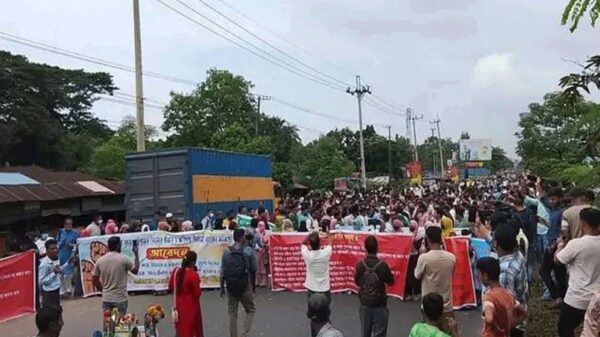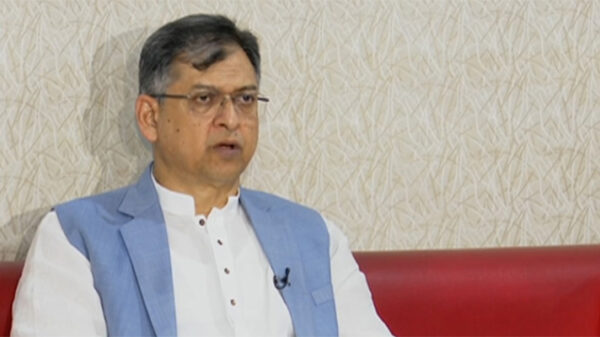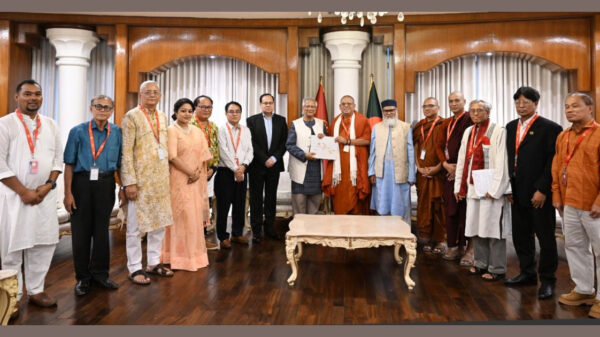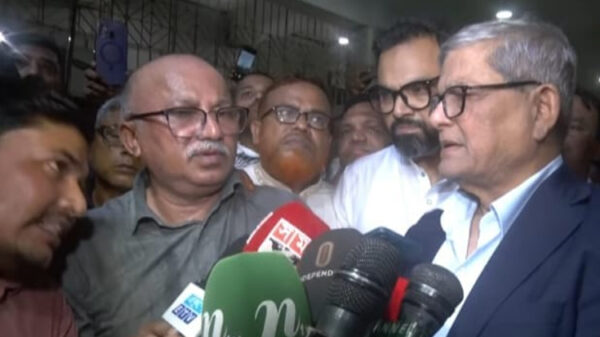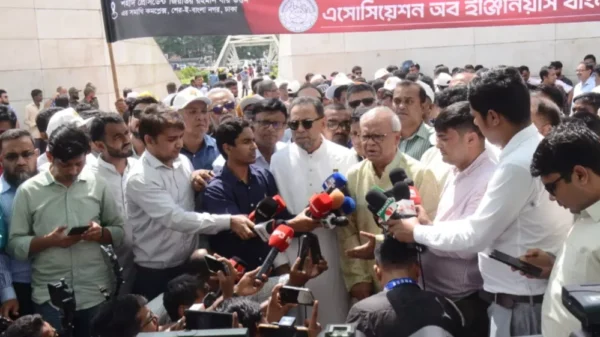Staff Reporter:
Chief Adviser’s Press Secretary Shafiqul Alam has said a group of journalists for the personal gains collaborated with fascist regime, manipulated the facts and crafted false narratives to legitimize the killings.
“During significant political events since 2009 including the July uprising, a section of journalists worked to justify the actions of autocrats by crafting narratives to legitimize authoritarian rule.
“Those journalists created an environment where people’s rights were disregarded, and violence was legitimized,” he added.
CA’s Press secretary was addressing a discussion titled ‘Fascist Media Narratives: A Retrospective on July 1–36’ organized by a platform named ‘We Want a Fascist-Free Mass Media’, at Zahur Hossain Chowdhury Hall of the National Press Club here yesterday.
Shafiqul Alam said some journalists acted as brokers of power during times of political turmoil, particularly during the July uprisings and other key national political events.
“Over the last 15 years, some journalists served the dictator in exchange for benefits,” he said.
He also criticized how political considerations, rather than merit, guided media appointments dur-ing the past regime, leading to the rise of biased journalism that served the interests of the gov-ernment.
In his address, Alam called for a shift in the media’s role in Bangladesh and emphasized the need for responsible and independent journalism, where media outlets will be focused on presenting facts and offering constructive criticism rather than praising political figures or government.
Urging journalists to practice constructive criticism of the government instead of praising, he said, “A few days ago, I noticed that a leading newspaper had published two or three articles praising Professor Yunus.”
“We called them and said there is no need to do this. Provide constructive criticism instead. We want you to highlight every issue. There is no need for praise.”
He said, “This is a crucial time for journalism in Bangladesh. We want to rebuild Bangladesh, and to do that, the second chapter of the interim government began yesterday with the Consensus Commission. We want all political parties and civil society to contribute to this effort.”
“Let’s build a country where everyone’s voice can be heard, where no one feels silenced, as has been the case for the past 15 years,” he said.
Chaired by the convener of the platform Zainal Abedin Shishir, it was also addressed by President of the Dhaka Journalists’ Union (DUJ) Mohammad Shahidul Islam, Chief reporter of the Business Standard Abbas Uddin Nayon, Publications secretary of Bangladesh Islami Chatrashibir Md Abu Shadik Kayem and Dhaka University Journalist Association (DUJA) president Mohiuddin Muzhaid Mahi.
The press secretary acknowledged the difficulties faced by journalists in the past and called for a new beginning.
“Journalism has gone through a terrible time. We want to leave it behind and create a Bangladesh where diverse voices are heard. We welcome criticism but insist that it is based on facts. We aim to open the path for reconciliation and build a fairer nation.”
Shafiqul Alam urged the media not to ignore significant events and failures of the past. “We failed to document the 1974 famine. We failed to report on the atrocities of the Rakshi Bahini. We can-not afford to fail again.”
He added, “We must ensure that future generations do not face the same challenges we did. No journalist should ever act as a power broker. This government wants to set an example. If we make mistakes, expose us. That is what journalism should be about.”
The spokesperson for the platform Plabon Tarique presented a key paper, analyzing more than 150 articles published between July 1–36, that had legitimized autocratic narratives.
He highlighted how specific reports in newspapers like Kaler Kantho, Janakantha, and Bhorer Ka-goj served to establish the fascist government’s agenda.



